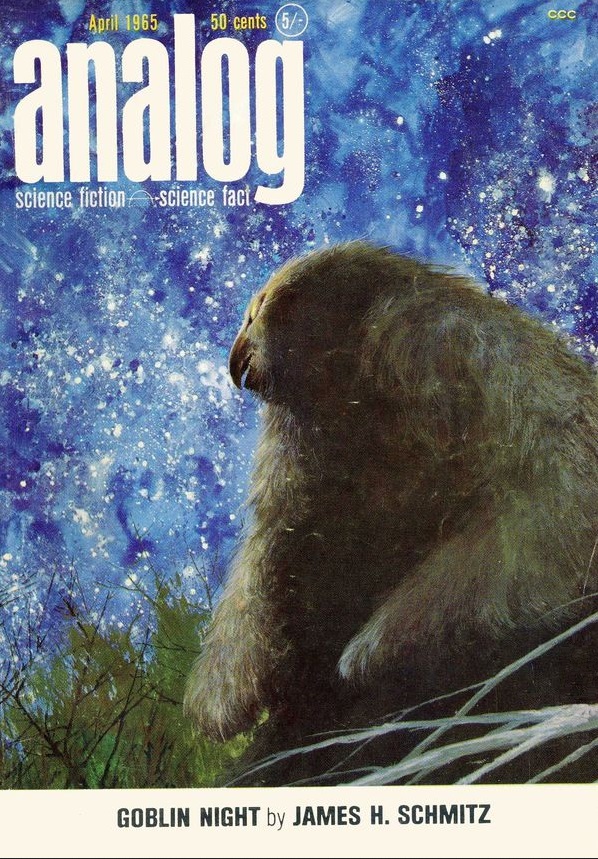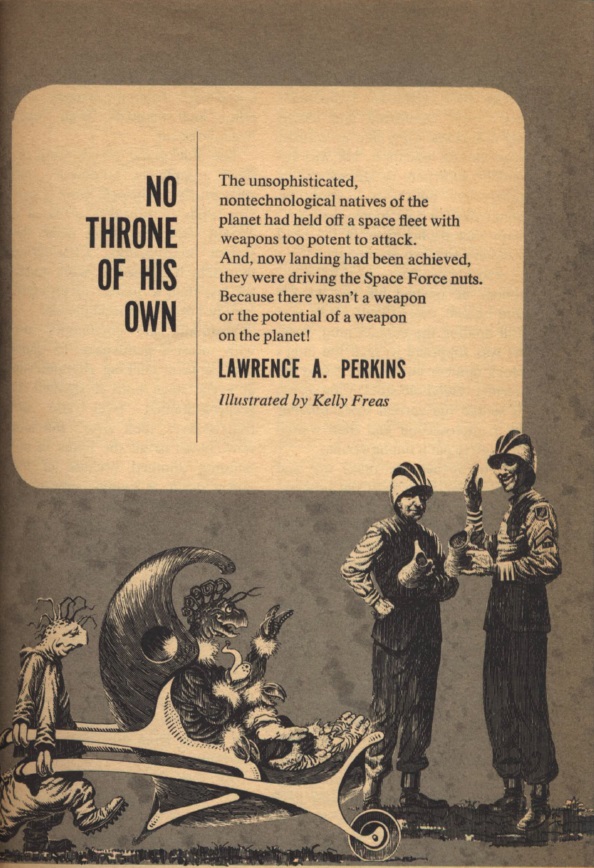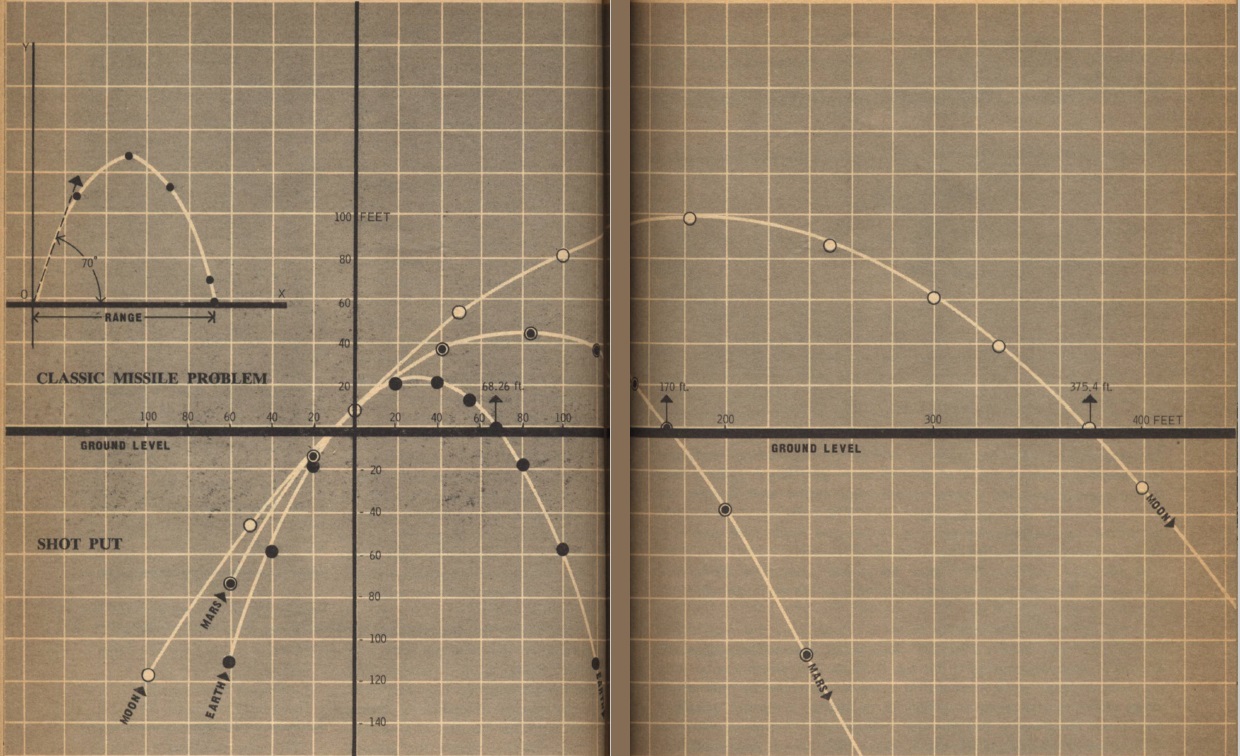
by John Boston
Changing of the Guard
So here we are at the end of the Ziff-Davis Amazing and the editorship of Cele Lalli. What’s next? The magazine doesn’t say. “Coming Next Month” is conspicuous by its absence, as are interior illustrations. But the story is being told elsewhere. The banner headline on Science Fiction Times for last month—if “banner” is the word for large crude mimeographed lettering—says “ ‘AMAZING’ AND ‘FANTASTIC’ GO BI-MONTHLY & ADD 32 PAGES,” just above “DON FORD IS DEAD!”
The first post-Z-D issue will be the August Amazing, and thereafter the magazines will be published in alternate months as the new owner and editor try to build circulation, by leaving each issue on sale for a longer time, in preparation for a return to monthly publication. The new publisher, as previously disclosed, will be Sol Cohen, and now it is announced that the managing editor—presumably, the guy who picks the stories—will be Joseph Ross, actual name Joseph Wrzos, but he is showing mercy to native English spellers.
Part of the plan for the new Amazing (and the new Fantastic too) is to use reprints as part of the contents, along with the original illustrations, a policy the SF Times describes as a “well-liked” recent feature of the Ziff-Davis Amazing. Well-liked by some, no doubt, but most of the stories seemed to me to have only historical interest.
Worse, even partial reliance on reprints from Amazing is a bad bet at least for any long term, since Amazing has been pretty mediocre through most of its history. During the 1930s it fell progressively further behind the limited competition of the day, both in circulation and in interest, and then was purchased by Ziff-Davis and put in the charge of the notorious Ray Palmer, whose instruction to writers is said to have been “Gimme bang-bang.” From 1938 to 1949 Palmer filled the magazine with formulaic and juvenile adventure fiction, much of it produced by a coterie of local Chicago writers who mostly published little or nothing elsewhere, with much of their output in Amazing appearing under “house names” (pseudonyms maintained by the publisher for work by multiple writers).
The magazine enjoyed a brief renaissance (well, maybe a nascence) starting in 1953 when it switched from pulp to digest size and, more importantly, raised its pay rates, attracting bigger names and better material. But it didn’t last; the rates were cut, and the magazine reverted by late 1954 to calculated mediocrity: mostly formulaic contents written by a new stable of regulars, though they kept some of the old house names, such as the durable Alexander Blade, a byline that flourished from 1940 to 1958. Little improvement was visible until about 1959, when new editor Cele Goldsmith began her salvage operation.
So the past of Amazing is a barrel whose bottom will be scraped quickly, full of fish mostly not worth shooting. One hopes for something more forward-looking as well from the new regime.
The Issue at Hand

by Gray Morrow
This final Ziff-Davis issue exemplifies the decidedly mixed bag of the Cele Goldsmith/Lalli regime: a potboiler of a serial from a prominent writer, an exercise in the higher self-parody by one of her best-known discoveries, a brief inconsequential story by a completely unknown new writer . . . the inescapable nemesis Robert F. Young . . . and David R. Bunch, the writer the readers loved to hate. Not only is his story flagged and illustrated on the cover, but Bunch is also profiled and quoted extensively in the final editorial. (Usually they’re by Lobsenz, but this one isn’t signed. Lalli, maybe, at last?) This celebration of Bunch might be viewed as a final gesture of defiance from the editorial team, especially given the cover illustration of a robot waving two sledge hammers in fury. But . . . probably not. After all, Lalli is sticking around Ziff-Davis to edit Modern Bride.
The Corridors of Time (Part 2 of 2), by Poul Anderson
The largest fiction item is the conclusion of Poul Anderson’s perfectly adequate but neither inspired nor inspiring serial The Corridors of Time, the title of which is unfortunately literal. Our hero Lockridge has been hired by the beautiful, enigmatic, and imperious Storm Dalloway to help her find some buried treasure in Jutland, but what she’s really about is a time war. Turns out there are two contending factions, the Wardens and the Rangers, the former (Storm’s side) supporting a relaxed social philosophy consonant with matriarchal religion and traditional knowledge, the latter supporting a more regimented view consonant with science and patriarchal religion (to oversimplify grossly—and it is a bit of a set-up on Anderson’s part).
So how does this time war work? Well, there’s the rub, or lack of one. Unlike its predecessors—Leiber’s Change War series, Jack Williamson’s The Legion of Time, Anderson’s own Time Patrol stories—in this one, you can’t change history. So . . . what’s the point? Well, as the synopsis (presumably written by Anderson) puts it, an agent can “become part of it, setting the mark of his own civilization on a culture and thus building up reserves for a final showdown.” That’s not changing history? Maybe just a little?
This makes no sense at all, and undermines the story. The time travel mechanism doesn’t help either. The Corridors of Time are just that, long corridors buried in the earth at various places, with access to various times over spans of a few thousand years; just walk or ride down the corridor, and you go 35 days per foot, and you take the exit you want for the time you want, and also you can have chases and shootouts up and down the corridor, as happens within the first few pages. As icons of the imagination go, this is pretty unimaginative.
On the plus side, Anderson gets to chase his characters around various historical eras, which Anderson seems to know well and in most cases to prefer to the present, and Lockridge reluctantly finds himself with an appealing Neolithic girlfriend (setting up an . . . unusual . . . triangle with Miss Dalloway), and ultimately Lockridge decides not to go back to the Twentieth Century, in a final affirmation of the barbarian virtues. Overall, perfectly readable product, but below standard for a writer who has done much better. Three stars, barely. There’s a note indicating an expanded version is to come from Doubleday later.
The Furies, by Roger Zelazny
Roger Zelazny’s novelet The Furies is ridiculous—purposefully so, it seems. The author spends the first six pages in exposition, introducing us to Sandor Sandor, catastrophically disabled, but also a non-idiot savant with encyclopedic knowledge and memory of places all around the galaxy; Benedick Benedict, who upon shaking hands with another person, becomes privy to all that person’s most shameful secrets, which he proceeds to gossip about—and his talents extend to inanimate objects and animals; Lynx Links, who “looked like a beachball with a beard” but by calling is the galaxy’s most accomplished assassin; and (former) Captain Victor Corgo, “the man without a heart” (literally, replaced by a machine), formerly “a terror to brigands and ugly aliens, a threat to Code-breakers, and a thorn in the sides of evil-doers everywhere,” but now gone wrong.
The first three of these are the Furies, so-called by the author after the ancient Greeks’ “chthonic goddesses of vengeance” (says the Britannica), here retained by the authorities to chase down Corgo, a sort of Captain Nemo figure who has turned against humanity based on outrages we need not recount. The story is rendered throughout in extravagant language and stylized dialogue. A mid-range sample of the former:
“One time the Wallaby [Corgo’s spaceship] was a proud Guardship, an ebony toadstool studded with the jewel-like warts of fast-phase projectors. One time the Wallaby skipped proud about the frontier worlds of Interstel, meting out the unique justice of the Uniform Galactic Code—in those places where there was no other law. One time the proud Wallaby, under the command of Captain Victor Corgo of the Guard, had ranged deep space and time and become a legend under legendary skies.”
So what we have here is midway between a technical exercise and a barroom bet. Zelazny has taken about the most hackneyed materials available and tried to render them publishable by pure force of his considerable writing skill, no doubt enhanced by his theatrical background, and he has succeeded. That is, he has dazzled enough rubes to get this into print, and has considerably amused me. If the young Shakespeare had started out in comic books (the names and talents of the Furies certainly suggest comic-book superheroes), the result might have been similar. Four stars, but watch it, guy: you can’t get away with this more than once. Or can you?
The Walking Talking I-Don't-Care Man, by David R. Bunch
As for Bunch (and speaking of extravagant language) the latest Moderan tale The Walking Talking I-Don’t-Care Man is made of that, though it’s more straightforward and lucid than some of its predecessors. The titular Man has had himself entirely replaced with metal, unlike Bunch’s protagonist in his Stronghold who still hangs on to his flesh-strips. The Man purports to have resolved the great philosophical dilemma of human existence by giving up humanity . . . but he still wouldn’t mind finding God and going after it with his sledge hammers.
One could conclude that this meditation, or harangue, on last things might be the end of the Moderan series . . . except the point seems to be that last things really aren’t last. But hey, four stars, at least in the spirit of “best of breed,” which I’d say this is for Bunch. Note to future bibliographers: the commas in the title on the cover do not appear inside the magazine.
Rumpelstiltskinski, by Robert F. Young
And now comes the inexorable reckoning: Robert F. Young, square athwart the road, and no shoulder to slip by on. First the bad news: Rumplestiltskinski is another of Young’s affected fairy tale rehashes, beginning “Once there was a miller who was car-poor but who had a luscious dish of a daughter named Ada.” The good news: it’s quite short and ostentatiously pointless, a sort of shaggy fairy story, perhaps signifying that Young is getting tired of himself. Let me encourage him in that. One star.
Satyr, by Judith E. Schrier
Finally, and almost imperceptibly, we have Satyr, a (very) short story by Judith E. Schrier. Who? Precisely—no one else has heard of her either, at least according to the available indexes. An unmarried older woman works the night shift as a computer operator and the computer professes its love, she realizes how masculine it is, etc. etc. to the obvious end. Slickly written, at least. Two stars, barely.
Lo! The Poor Forteans, by Sam Moskowitz
Sam Moskowitz plays out his season (rumor having it that he won’t be part of the new Amazing) with Lo! The Poor Forteans, a moderately interesting biographical sketch of Charles Fort and history of the Fortean movement, such as it is or was. There is also some rambling and mostly perfunctory discussion of the Fortean influence in science fiction, much of which we know about because the authors (like Edmond Hamiliton and Eric Frank Russell) have commented on it, but much of which is questionable (The Children’s Hour by Lawrence O’Donnell a/k/a C.L. Moore? I doubt it). Moskowitz has also omitted some other fairly obvious candidates like Heinlein’s The Puppet Masters. Moskowitz also tediously belabors his own disdain for Forteanism. But still, three stars, chiefly for the history and not the commentary.
Summing Up
The Ziff-Davis Amazing under Lalli was always full of promise but never managed to deliver on it for more than a month or two at a time. It winds down on a respectable note, with above-average stories from two of its most characteristic authors, plus a competent middle-of-the-road serial. Quo nunc vadis Amazing?
Speaking of changed circumstances at publishing houses, please read this — it's important!

![[May 12, 1965] Da Capo (June 1965 <i>Amazing</i>)](https://galacticjourney.org/wp-content/uploads/2020/05/amz-0665-cover-391x372.png)

![[May 8, 1965] Skip to the end (June 1965 <i>Galaxy</i>)](https://galacticjourney.org/wp-content/uploads/2020/05/650508cover-535x372.jpg)











![[May 2, 1965] FORWARD INTO THE PAST (June 1965 <i>IF</i>)](https://galacticjourney.org/wp-content/uploads/2020/04/IF-June-1965-cover-647x372.jpg)





![[April 30, 1965] Back-door uprising(May 1965 <i>Analog</i>)](https://galacticjourney.org/wp-content/uploads/2020/04/650430cover-663x372.jpg)










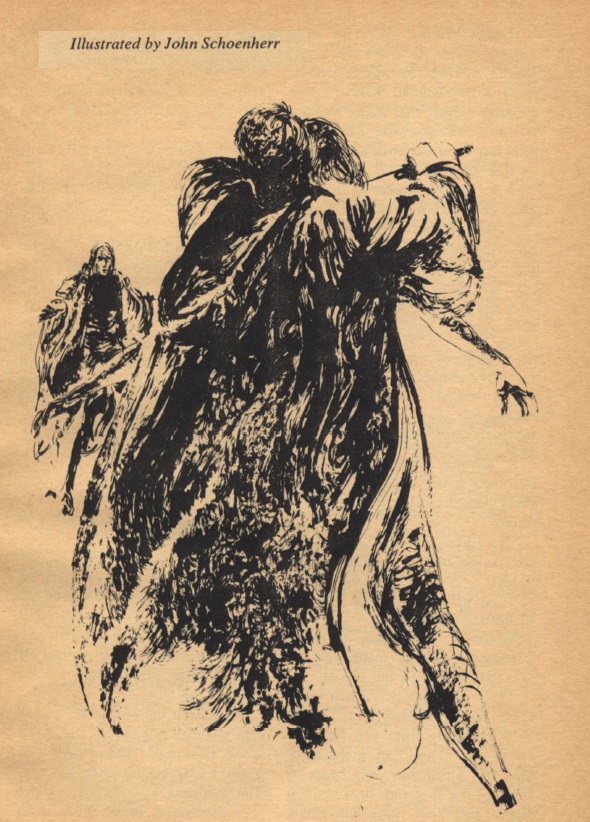

![[April 28, 1965] Mermaids, Persian Gods and Time Travel <i>New Worlds and Science Fantasy, April/May 1965</i>](https://galacticjourney.org/wp-content/uploads/2020/04/NW150--672x372.jpg)

 [Flowers in Stratford upon Avon]
[Flowers in Stratford upon Avon]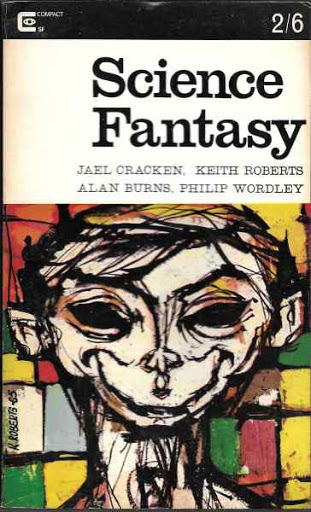




![[April 24, 1965] Every Silver Lining Has A Cloud (May 1965 <i>Fantastic</i>)](https://galacticjourney.org/wp-content/uploads/2020/04/Fantastic_v14n05_1965-05_0000-2-672x340.jpg)






![[April 22, 1965] Cracker Jack issue (May 1965 <i>Fantasy and Science Fiction</i>)](https://galacticjourney.org/wp-content/uploads/2020/04/650422cover-575x372.jpg)



![[April 12, 1965] Not Long Before the End (May 1965 <i>Amazing</i>)](https://galacticjourney.org/wp-content/uploads/2020/04/650412cover-672x372.jpg)


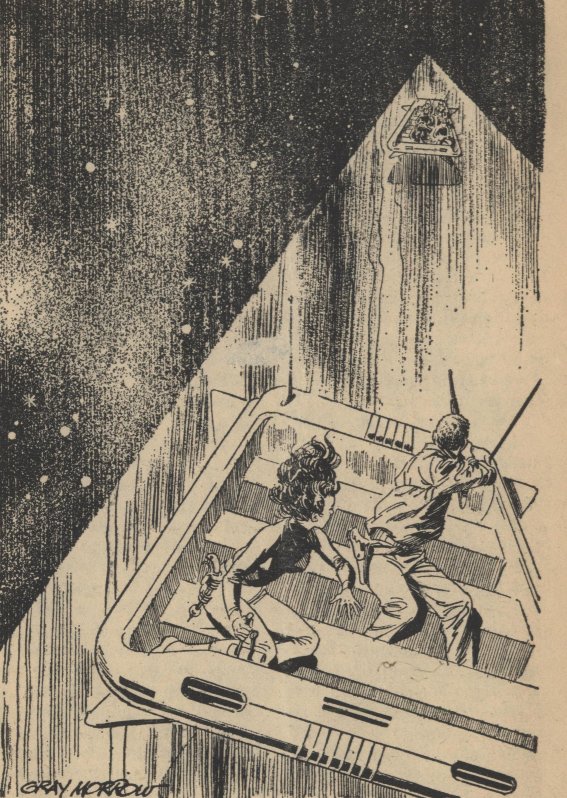
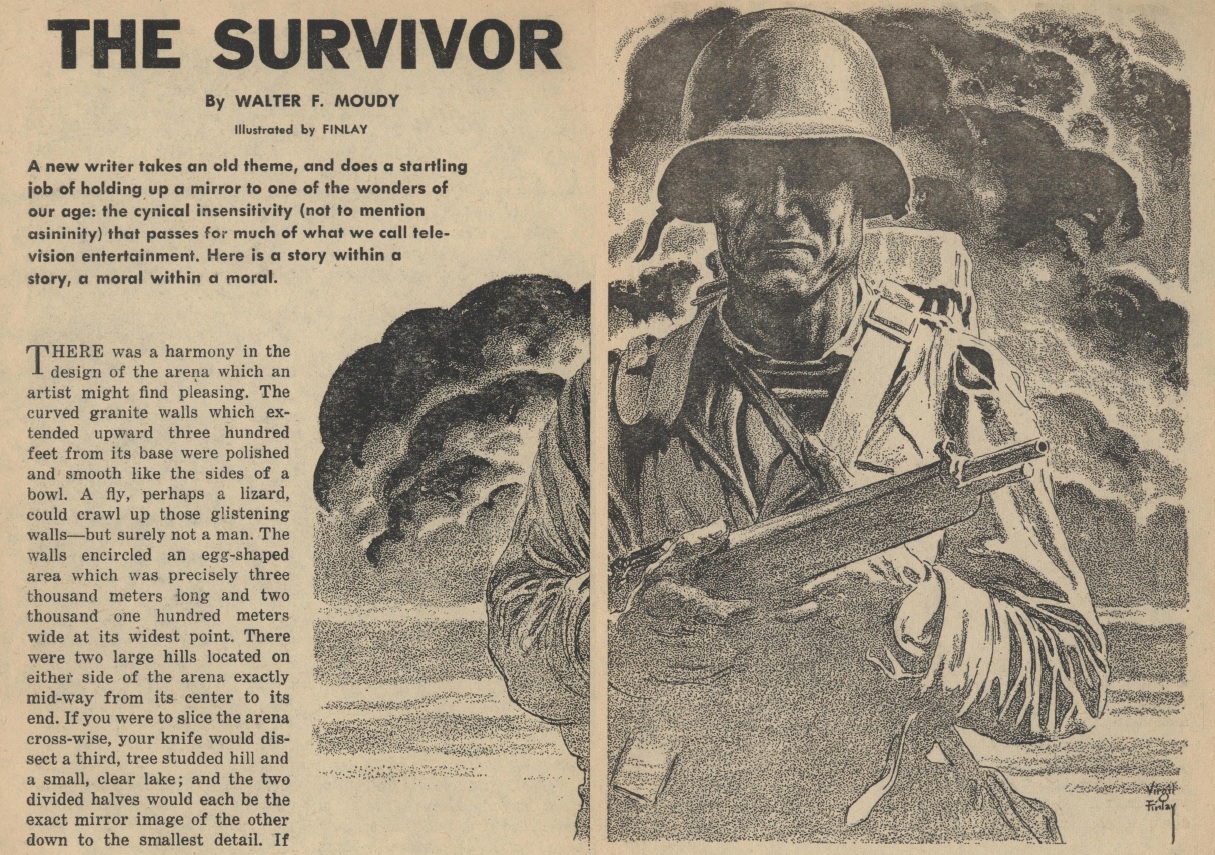

![[April 2, 1965] SPEAKING A COMMON LANGUAGE (May 1965 <i>IF</i>)](https://galacticjourney.org/wp-content/uploads/2020/03/IF-April-cover-647x372.jpg)


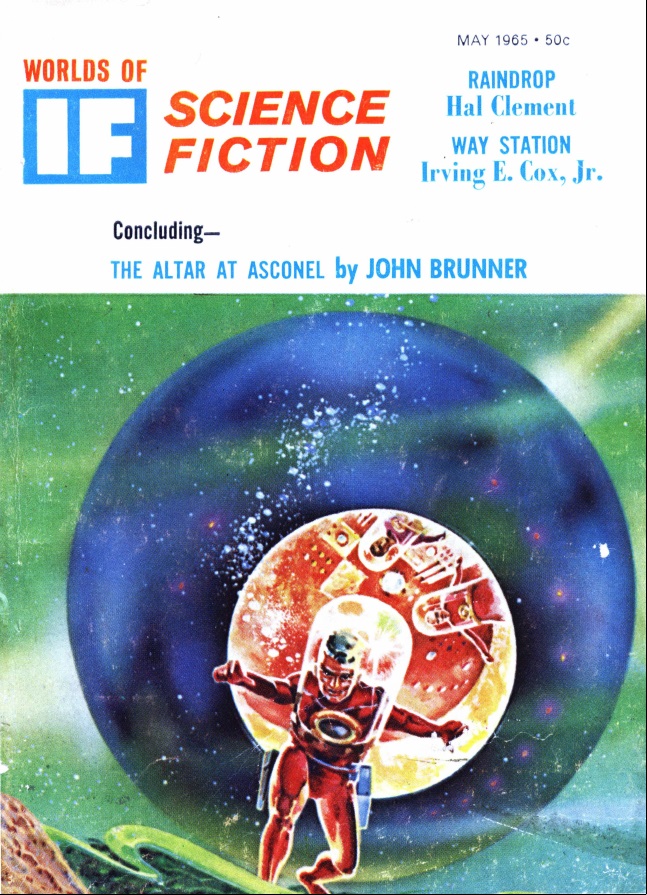
![[March 30, 1965] Suborbital Shots (April 1965 <i>Analog</i>)](https://galacticjourney.org/wp-content/uploads/2020/03/650330cover-598x372.jpg)
